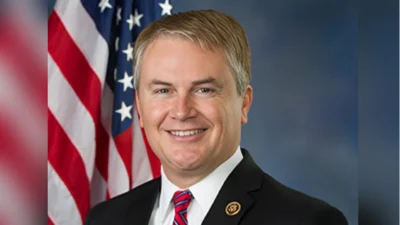WASHINGTON, D.C. - Ways and Means Social Security Subcommittee Chairman John S. Tanner (D-TN), issued the following opening statement at a Subcommittee hearing on SSA’s Implementation of the American Recovery and Reinvestment Act of 2009 (P.L. 111-5):
“Today’s hearing will provide the Subcommittee with the opportunity to hear a report from the Social Security Administration (SSA) on its implementation of the American Recovery and Reinvestment Act of 2009. This landmark legislation was signed into law on Feb. 17, and is designed to create jobs, promote economic recovery, assist people most impacted by the recession, and make investments in infrastructure and technology to increase economic efficiency and provide long-term economic benefits.
“SSA provides basic income to America’s retirees, people with disabilities, and survivors, who rely on SSA’s historically high level of customer service and efficient operations. SSA’s ability to maintain this level of performance has already been constrained by a decade of underfunding, and this Subcommittee has repeatedly expressed its serious concerns with the growing backlogs in processing of disability claims and other service delivery problems.
“Late last year, SSA informed Congress of the urgent need to replace its National Computer Center (NCC), where all of SSA’s data storage and computer processing is done. The current facility is in a building that is physically deteriorating and quickly running out of capacity to provide sufficient electrical power to the NCC. After many years of re-tooling and patching its systems to meet SSA’s growing reliance on electronic processing, SSA’s IT managers have finally met a challenge they cannot overcome by use of their own expertise. SSA’s IT needs are rapidly outgrowing the current NCC, which is projected to reach the end of its useful life in 2013.
While I am troubled by the apparent suddenness of this crisis and concerned that SSA did not act sooner to begin the lengthy process of replacing the NCC, I believe Congress responded appropriately by providing SSA with the necessary funding in the Recovery Act. I am eager to hear what progress is being made on this project.
“SSA also received an additional $500 million in the Recovery Act to begin processing a substantial increase in retirement and disability claims, driven by the recession. The total cost to process these claims is projected to be $900 million, so additional funding will be needed in FY 2010 to process claims timely and avoid a worsening of the disability backlog.
“Finally, the Recovery Act provided individuals who are Social Security, Supplemental Security Income (SSI), Railroad Retirement Board, or Veterans Compensation and Pension beneficiaries with a one-time, special economic recovery payment of $250 in addition to their usual benefits. These payments are intended to assist beneficiaries who are affected by the economic downturn, while putting money into the hands of individuals who are more likely to spend it and thus stimulate the economy. SSA is responsible for identifying eligible Social Security and SSI beneficiaries. I was glad to hear that the Department of Treasury expects to begin disbursing the payments to all eligible beneficiaries, totaling nearly 64 million individuals, in early May.
“Our witnesses will be reporting on SSA’s implementation of the Recovery Act, what has happened already and what is being planned. We will also hear suggestions for potential areas of concern about the NCC project, where this Subcommittee will continue to apply its oversight responsibilities for the next several years.
“I look forward to hearing from all of the witnesses today.
“Finally, I would like to thank Ranking Member Sam Johnson, Mr. Brady and the other Members of the committee for their steadfast interest in ensuring that SSA can effectively serve the American people, and for sharing the view that these issues must be addressed in a bipartisan manner."








